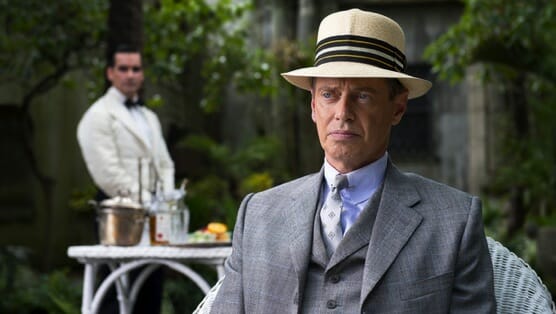Boardwalk Empire: “Golden Days for Boys and Girls”
(Episode 5.01)

It’s to HBO’s credit that the network has allowed shows like Treme and Boardwalk Empire the money and time to finish themselves, since—unfortunately for them—some of these series that seemed at first to be surefire successes, lost their ways long before coming to a conclusion. Nearly everything HBO produces looks pretty, and features master thespians putting in stunning performances, but for whatever reason they don’t always quite come together. In the case of Boardwalk Empire, the show had trouble ever finding any real reason for existing, any purpose. Initially it was the story of how Nucky Thompson helped form modern America through bootlegging during prohibition, but aside from that broad statement there’s never been much of a plot. People have risen or fallen, lived or died, but why any of that is important has yet to be discovered.
Quite a few of the show’s problems have come from its reliance on actual American history. At first, this actually seemed like one of Boadwalk Empire’s strengths. Dramatizing these larger-than-life events and figures seemed like a clever way of giving its action more depth, or at least gravitas. But the reliance on history served only to hamstring the show’s stories, shaping them in contorted and dull ways. There also seems to be this desire to have things both ways: at times it’s been difficult to follow its wheeling and dealing without doing some research into the time period, but Boardwalk Empire also always takes some creative license (thus irritating those who wish it would stick closer to the facts). Ultimately, the historical basis always meant the show was digressing to seemingly unimportant people and places, rather than keeping the focus on its main cast and their locales. The historical nature sprawled things about in a bad, cluttered and confusing way, as opposed to similar structures in shows like The Wire or (largely) Game of Thrones that try the same thing, but get it right.
-

-

-

-

-

-

-

-

-

-

-

-

-

-

-

-

-

-

-

-

-

-

-

-

-

-

-

-

-

-

-

-

-

-

-

-

-

-

-

-








































